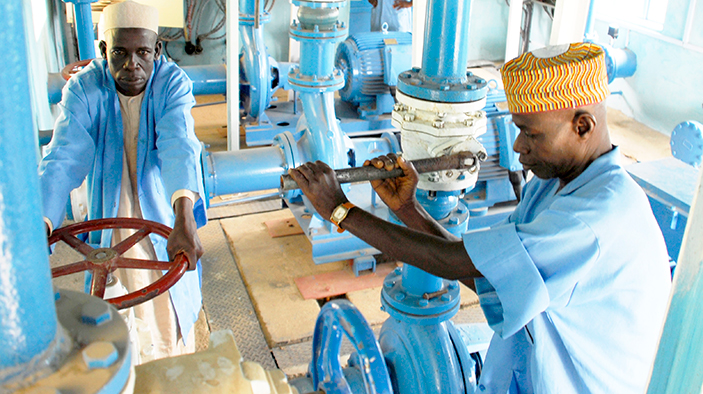Nigeria—Policy Development Facility I
Client: Foreign, Commonwealth & Development Office
Duration: 2010-2015
Region: Sub-Saharan Africa
Country: Nigeria
Solutions: Economic Growth Governance
The Policy Development Facility was a flexible, rapid-response facility designed to support those “champions of change” who are driving economic and social policies that reduce poverty in Nigeria, primarily ministers at the federal level. The Facility helped to build their capacity and provide a more robust evidence base to pursue vital pro-poor economic and social reforms.

Sample Activities
- Provide support to key economic reformers and organisations through qualified and effective embedded advisers.
- Promote evidence-based, pro-poor policy dialogue to strengthen institutional linkages between the suppliers and consumers of information.
- Undertake economic data collection, research, and analysis to inform the dialogue between the Government of Nigeria and other stakeholders.
Select Results
- Transformed YouWiN!, a government-run business-plan grant competition, into a merit-based exercise, with applications rising from 24,000 to 114,000.
- Supported restructuring of the development finance institution sector and created a “wholesale” approach through the establishment of the Development Bank of Nigeria. With support from the World Bank, the new, more private sector-oriented entity will expand access to funding for Nigerian enterprises and access to formal financial services for smaller borrowers.
- Assisted in operationalising the Nigeria Sovereign Wealth Fund.
- Helped develop national policies for rice, cement, textiles, and trade.
- Facilitated reform of the mining and steel industry, which tripled the Ministry’s contribution to the federation account, rising to 2 billion naira in 2016—up from 700 million in 2015—with a further 3.5 billion naira in 2017. Helped develop national policies for solid minerals and mining.
- Assisted the Nigerian Sovereign Investment Authority to make its first investments in the health and agriculture sectors.
- Enabled the Efficiency Unit in the Federal Ministry of Finance to save 184.24 billion naira on overhead expenditure alone in 2016–2018.
- Supported the first sovereign green bond, issued in 2017 to fund the Energising Education Project, which provides solar power to nine universities in Nigeria.
- Transformed the approach and culture of the Office of the Auditor General regarding conducting audits, introducing global best practices and delivering high-quality audit reports.
- Supported the provision of 500,000 direct jobs through N-Power for youth between the ages of 18 and 35, and facilitated other jobs programmes executed by the Ministry of Mines and Steel and the Ministry of Agriculture.
RELATED CONTENT:
Regional—AL-INVEST Next Programme Management Unit and EU-LAC Trade and Investment
The AL-INVEST Next Programme and its EU-LAC Trade and Investment Component promote a more dynamic and sustainable economic relationship between the EU and the countries of Latin America and the Caribbean.
Read More